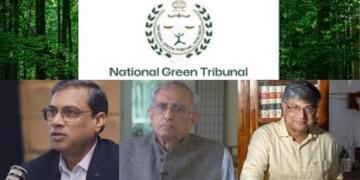Dinesh Trivedi took to announcing his resignation from the Trinamool Congress on the floor of the Rajya Sabha on Friday, while participating in the debate on the Union Budget 2020-21. The former Railways Minister revealed in the Rajya Sabha that he was feeling suffocated in a party he and a handful others like him, including Mamata Banerjee founded. In interviews with some media outlets, the TMC stalwart took to revealing that the TMC’s soul was no longer in the cadre or the fundamental ethos with which the party was founded, but had instead shifted in the hands of some “corporate consultants”, in an apparent jibe at I-PAC chief Prashant Kishor.
In fact, Dinesh Trivedi made use of multiple vivid metaphors and adjectives, embarrassing the TMC perhaps like no other inner leader has in recent past. Trivedi’s friction with Mamata Banerjee and Prashant Kishor is not particularly unknown, and his differences with the party date back to 2012, when he was unceremoniously removed as Railways Minister upon the insistence of Mamata Banerjee for not toeing the populist line.
That Prashant Kishor has delegated all decision-making within the TMC upon himself is no secret. In fact, Dinesh Trivedi went on to call Prashant Kishor a “corporate adviser” which the TMC has of late come to swoon over. “When some insecure people become the leader of the party and their entire job is to backbite and hatch conspiracies then there is a serious problem in the party…I don’t think the party is anymore in control of Ms. Banerjee; it is being run by some corporate advisers. Why should a poor party pay someone so much money to dish out political advice?” said Trivedi to the Hindu after his resignation from the party.
In a jibe at Prashant Kishor, who he called a “corporate adviser”, Trivedi also said, “They have no idea between a panchayat and a municipality. If they are going to become leaders, then I think there is something terribly wrong with the party. It is up to you to decode who they are.”
Speaking to The Hindu, Dinesh Trivedi, when asked what proved to be the last straw for him leading to a dramatic turn of events in the form of his resignation from the TMC on the floor of the Rajya Sabha, said, “I didn’t want to become a Bhishma Pitamah. In Mahabharata, Bhishma Pitamah was blamed for watching the violence and injustice unfold without saying a word. I cannot keep quiet when there is corruption in the party and violence on the streets of Bengal.” The ‘Bhishma Pitamah’ syndrome which shook Trivedi’s conscience was one that drew lessons from the fact that Bhishma Pitamah from Mahabharat, while knowing what the Kauravas were doing was wrong, was bound to be loyal to the throne of Hastinapur nevertheless. Dinesh Trivedi, however, has made clear he is bound to Mamata Banerjee by no oaths.
After quitting the party, the former TMC stalwart also revealed how the party had been forcing him to speak out against Prime Minister Narendra Modi – a proposition which he denied outright. “Every day I was asked to abuse Prime Minister Narendra Modi. That is not my value system. I cannot do that. If the Prime Minister does something good, we must appreciate it. And if the government does something wrong, we must draw their attention and emphatically oppose it while maintaining decorum,” Trivedi said.
Being the master orator, and election strategist that he is, Dinesh Trivedi quitting the TMC comes as the latest shock to Mamata Banerjee – a gigantic one at that. Already reeling under the pressure of an unending exodus of leaders to the BJP, the TMC’s electoral fortunes in the state of West Bengal are shrinking with each passing day. Dinesh Trivedi’s exit from the party is not just a major loss for Mamata Banerjee, but also a real-time indicator of the political winds blowing in BJP’s favour in the poll-bound state.

























